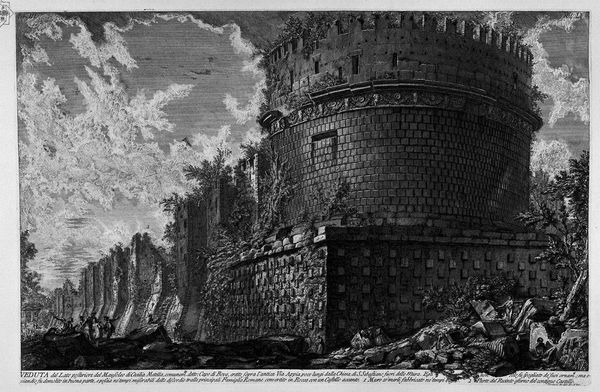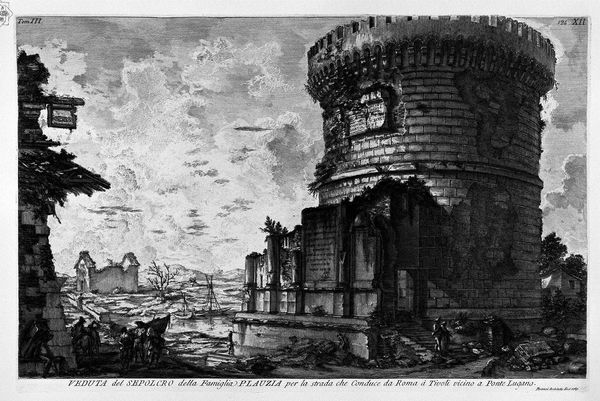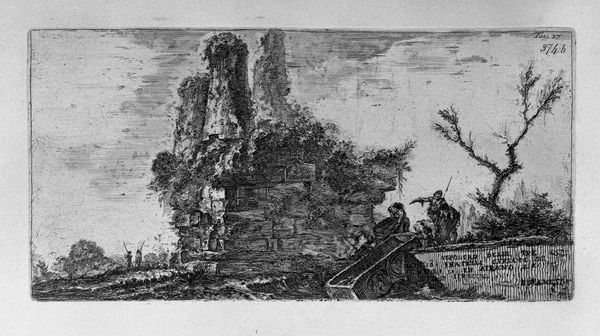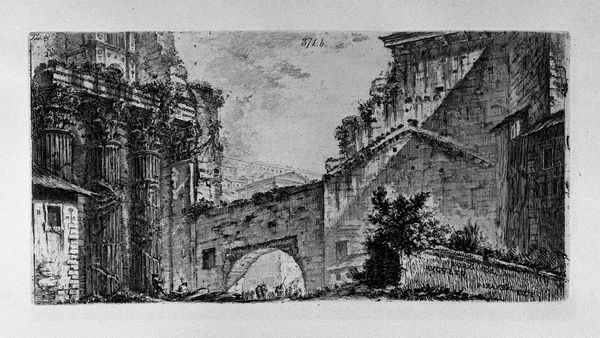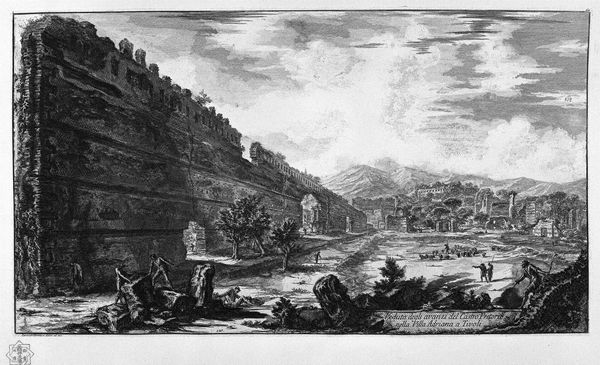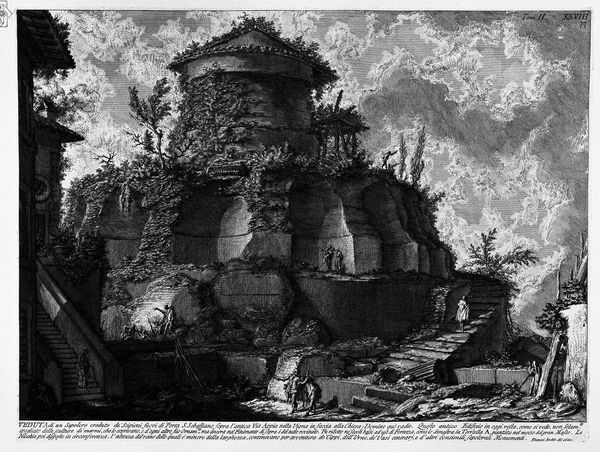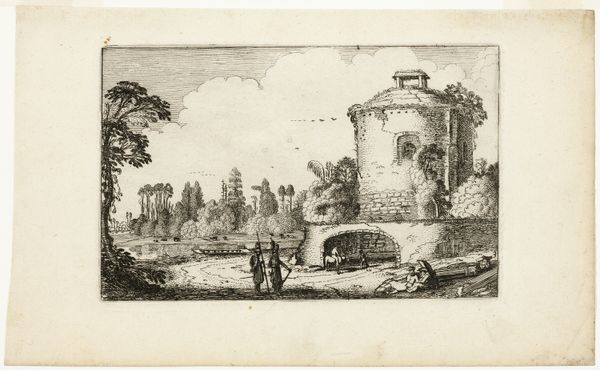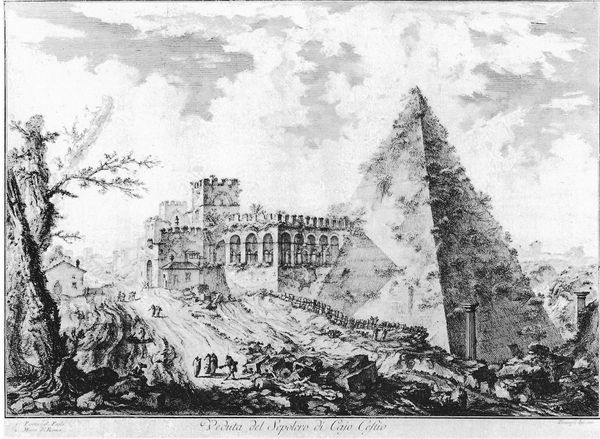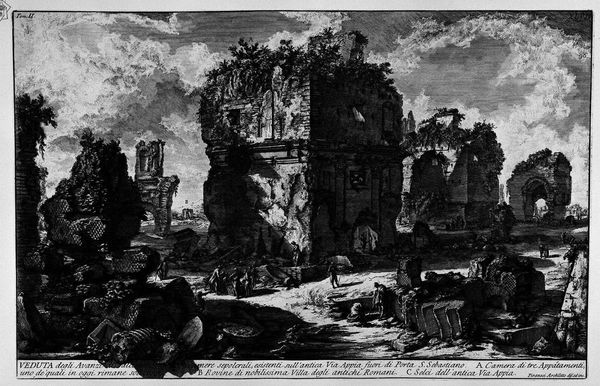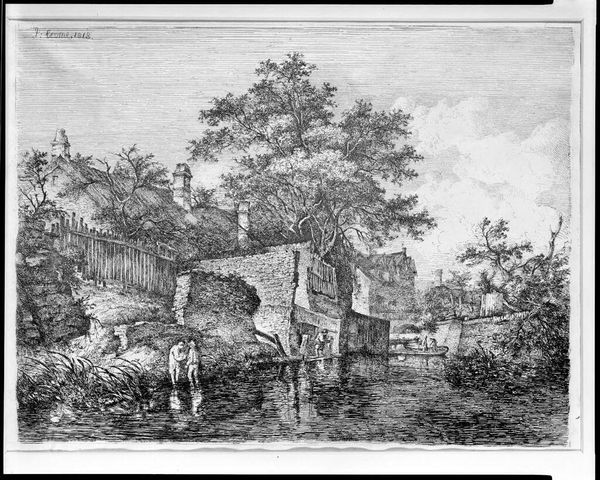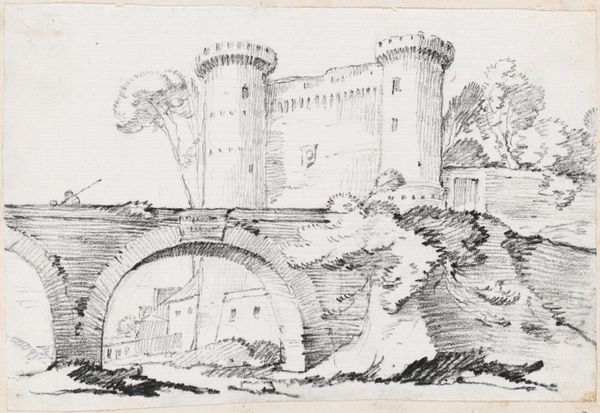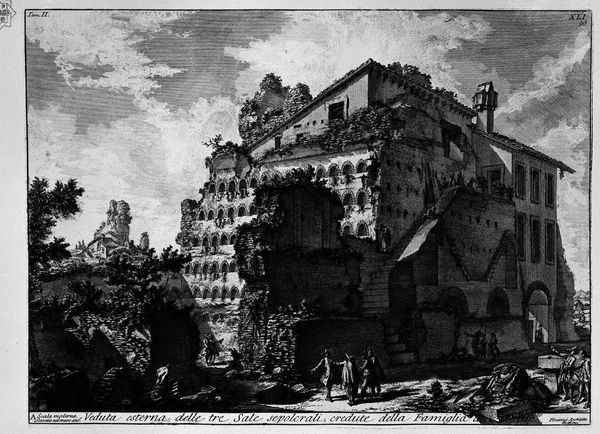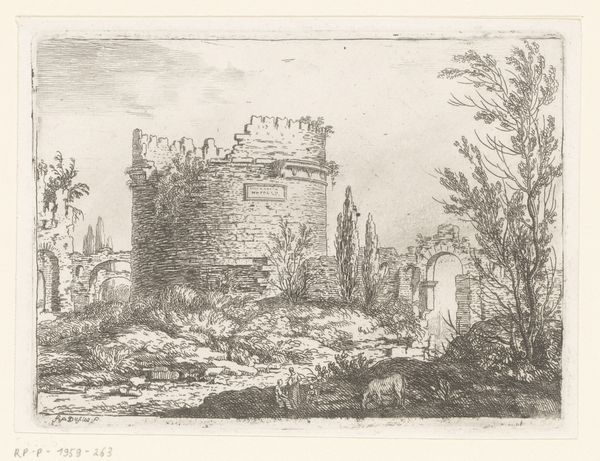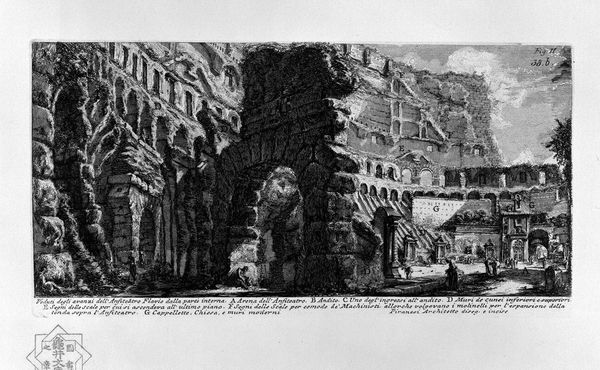
print, etching, architecture
#
neoclassicism
# print
#
etching
#
pencil sketch
#
landscape
#
charcoal drawing
#
charcoal art
#
romanesque
#
pencil drawing
#
cityscape
#
charcoal
#
architecture
Copyright: Public domain
Editor: Here we have Giovanni Battista Piranesi's "Amphitheatre of Verona," an etching from 1748. It's incredible how much detail he captured! I'm struck by the way the light and shadow give such a dramatic, almost theatrical feel. What do you see in this print? Curator: I see layered time, a palimpsest of human ambition and natural forces. Notice how the Amphitheatre, though presented as a ruin, still asserts a monumental presence. This speaks to the enduring power of Roman ideals, constantly reinterpreted. The creeping vegetation, however, tells another story—nature reclaiming what civilization abandons. It's a potent reminder of mortality, both for structures and empires. Editor: That's fascinating, the idea of nature reclaiming civilization. It seems almost romantic. Do you think Piranesi was intentionally making a statement about the transience of power? Curator: Undoubtedly. Piranesi, immersed in antiquity, wasn’t just documenting; he was engaging in a dialogue with the past. He understood that ruins, these fragments of what was, become potent symbols. Ask yourself, what does it mean when a structure designed for spectacle becomes itself an object of spectacle, consumed by time? Editor: It makes you wonder about our own legacies, what will remain of our culture. The contrast between the man-made and the natural is really brought to the fore in this artwork, in an unsettling way. Curator: Precisely. It's an unsettling beauty, a memento mori rendered in exquisite detail, compelling us to reflect on the cyclical nature of history and the constant dance between creation and decay. Perhaps the 'Amphitheatre' serves as a mirror to reflect upon civilization itself. Editor: I hadn't considered it in that light before. Thank you!
Comments
No comments
Be the first to comment and join the conversation on the ultimate creative platform.
